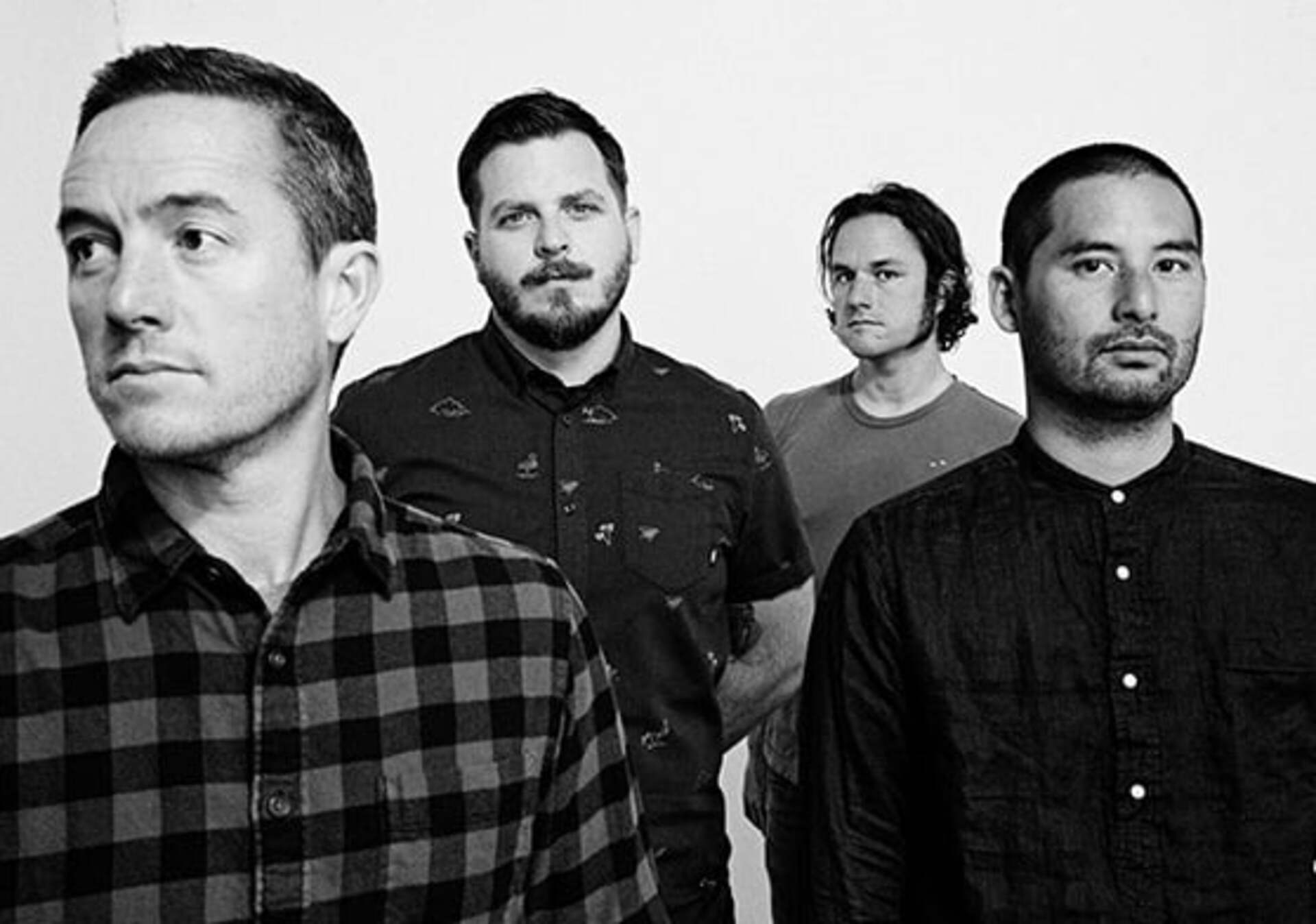Much like its predecessor—2016’s politically minded To Be Everywhere Is to Be Nowhere—Palms mines a great deal of inspiration from the literary and philosophical realm. In his lyric-writing, Kensrue drew from sources as varied as the lectures of philosopher Alan Watts, the writings of Franciscan friar Richard Rohr, and the process metaphysics of mathematician Alfred North Whitehead. “In the past couple of years I’ve come to embrace a more non-dualistic way of looking at the world, partly because of listening to and reading things that broke me out of those black-and-white patterns,” Kensrue notes. On the album-opening “Only Us,” Thrice bring that newfound understanding to a heady fusion of frenetic synth lines, fragile harmonies, and massively heavy guitar riffs. “‘Only Us’ came from thinking about how we’re so easily divided into ‘us’ and ‘them,’ when really we have an inherent ability to care for those in our group, and the parameters for who falls into that group are extremely flexible,” says Kensrue. “It’s about how the things that we think separate us are actually inconsequential, and if we could broaden the idea of ‘us’ to include all people, it would help us to build a more loving and civil society.” All throughout Palms, Thrice instill both vulnerability and urgency to their uncompromising self-reflection. At turns gracefully melodic and furiously intense, lead single “The Grey” captures what Kensrue describes as “the frustration that comes from straining within some kind of system, and the feeling of freedom that comes from moving into a new way of understanding things.” One of the album’s most stunning moments, the piano-laced and quietly glorious “Everything Belongs” examines the notion that “there’s a way to view the world where everyone does belong and fits together quite beautifully,” according to Kensrue. And on “Beyond the Pines,” Thrice close out Palms with an intricate arrangement of crystalline guitar tones, gentle percussion, and starkly delivered lyrics inspired by a passage from “The Great Wagon” by 13th century poet Rumi: Out beyond ideas of wrongdoing and rightdoing/there is a field. I’ll meet you there. “‘Beyond the Pines’ is about how all the names and the labels we put on things have nothing to do with their essence,” says Kensrue. “There are deeper realities at work, and nothing sorts itself as neatly as we’d like it to.” Elsewhere on Palms—such as on the powerfully cathartic post-hardcore of “A Branch in the River”—Thrice return to some of the most formative influences from their early years. Hailing from Orange County, California, the band formed when three of its members were still in high school, making their debut with the kinetic punk/hardcore hybrid of the 2000 album Identity Crisis. Their breakthrough arrived with 2003’s The Artist in the Ambulance—Thrice’s third full-length, whose singles “All That’s Left” and “Stare at the Sun” each landed on the Billboard Alternative Songs chart. With their past releases also including an ambitious duo of concept albums (2007/8’s The Alchemy Index: Fire and Water and Earth and Air), the band took a several-year hiatus starting in 2012, then re-emerged with To Be Everywhere Is to Be Nowhere (an album on which Thrice “conjure an atmospheric beauty but maintain a connection to the dirt beneath their feet,” according to DIY Magazine). Thrice’s first release since signing to Epitaph in early 2018, Palms matches its raw passion with a measured intensity, a rare feat for an album so informed by the volatility of the times. “Even though some of these songs are really aggressive-sounding, I wanted to make sure they never felt like finger-pointing, especially at a time when there’s so much talking past each other,” says Kensrue. Within that approach, Thrice reveal their profound commitment to making an enduring impact on the listener. “You can’t expect someone to automatically shift to the way you see the world, and you’ll just end up getting frustrated if you try,” Kensrue says. “But I do think we can change through lots of little interactions, and gradually start to see things differently. I hope that the record can operate like an ongoing conversation, where it slowly brings people to a place of looking at the world in a more open-ended way than they did before.”


